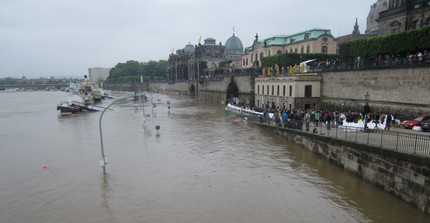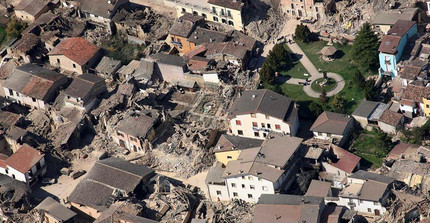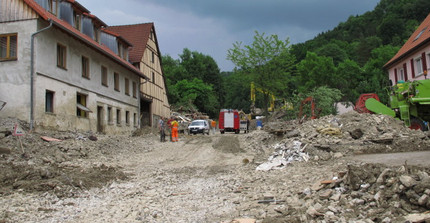NatRiskChange Research Program
The overall objective of NatRiskChange is to develop and advance methods of analysing and quantifying natural hazards and risks in a changing world. The key scientific aims are the development, testing and pilot application of methods that identify, simulate, and predict natural hazards and associated risks that are under the influence of changing boundary conditions or altered intrinsic dynamics. To keep NatRiskChange manageable we constrain the studies to hydro-meteorological, seismological and gravitational hazard types as well as to technical vulnerability.
For the scientific exploration of the transient behaviour of such systems and the related consequences, we divided the research into three workpackages:
- Indentification of transient states of hazard and risk: Can we identify whether a hazard-prone geo- or hydro-system, including any human-technical components, is in a state of transition? What are the data requirements for a reliable detection of such behaviour? How certain can we distinguish between stochastic variability and structured / systematic changes? What is the null hypothesis?
- Quantification of transient states of hazard and risk: Can we understand and quantify transient states and specify causes for transient behaviour? How do we distinguish changes in hazard from those in vulnerability? How do we interpret transient risk and relate this to practical management?
- Prediction of transient states of hazard and risk: Can we utilize the transient character of such systems to make predictions for the future and for other regions? What is the uncertainty and predictive power of such methods? These questions include the development of non-stationary models and the check of their explanatory power and uncertainty by comparing model results with observations.
By bundling these questions pertinent to both theory and practice in dealing with natural hazards and risks, we anticipate the paving of new research avenues for quantifying change in hydro-systems and geo-systems by actively exchanging knowledge and methods between complex system analysis, geo-sciences and hydro-sciences.



